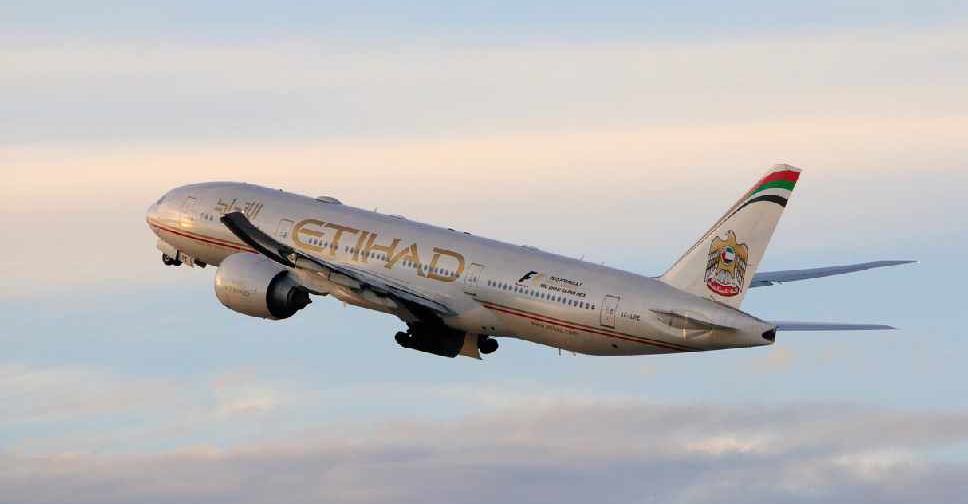Etihad Airways Announces New Direct Flights to Damascus, Syria: A Bridge to Historical Significance
By ARN News Staff
Thursday, 18 September 2025
In a notable development for air travel in the Middle East, Etihad Airways, the esteemed national carrier of the United Arab Emirates, has unveiled plans to commence direct flights to Damascus, Syria, starting June 2026. This move aims to cater to the escalating demand for direct travel to one of the oldest continuously inhabited cities in the world, which resonates with significant historical and cultural importance.
The introduction of this new route will feature four weekly flights, operated by Etihad’s modern Airbus A320 aircraft. This model is equipped with eight Business Class seats and 150 Economy Class seats, thereby providing travelers with both comfort and commercial access. With this addition, Etihad Airways not only enhances its service offerings but also strengthens its commitment to connecting the UAE and the Gulf Cooperation Council (GCC) region with historical locales in the Levant.
Antonoaldo Neves, the Chief Executive Officer of Etihad Airways, articulated the airline’s pride in expanding its network into Damascus, stating, “We are proud to expand our network into Damascus – one of the world’s most historic and culturally important cities – and to support the Syrian population with direct links to and from Abu Dhabi, as well as convenient onward connections across our global network.” This statement underscores the significance of facilitating direct air travel for the Syrian populace, many of whom may have been yearning for reliable connectivity.
Damascus, long regarded as a center of trade, culture, and politics, has suffered through years of disruption due to conflict. The re-establishment of regular air services is indeed a positive step toward reinvigorating tourism and commerce in the region. As travel restrictions lift and stability gradually returns, the new route is positioned to serve not just expatriates and business travelers but also a burgeoning interest from tourists eager to explore the city’s rich tapestry of history.
In addition to direct flights, Etihad Airways offers passengers opportunities for seamless connections through Abu Dhabi International Airport, a hub known for its efficiency and expansive international network. With more than 80 global destinations in its repertoire, passengers can benefit from a plethora of travel options that extend far beyond Damascus, making it easier than ever to explore other parts of the world from this nexus.
The ramifications of this route extend beyond mere travel convenience. It signals a broader trend of regional reconciliation and growth, akin to the numerous dialogues among Middle Eastern nations aimed at fostering collaboration and connectivity. The potential for rekindling economic relations and cultural exchanges could render Damascus not only a tourist destination but also a re-emerging economic hub.
Moreover, the move aligns seamlessly with the UAE’s vision to broaden its tourism portfolio and engage more actively with its neighboring nations. The Emirates has been investing significantly in the promotion of air travel, often seen as a means to unite people across various borders, traditions, and cultures. The decision to add Damascus to its list signifies the willingness to support and enhance the travel landscape within the region, reviving routes that have been dormant for years.
In the wake of these developments, travel agencies, hospitality businesses, and local enterprises in Damascus can expect an uptick in economic activity. The influx of tourists, expatriates, and business travelers could provide a much-needed boost to the economy, engendering opportunities for local businesses to flourish again—especially those in tourism and hospitality, sectors that bear the brunt of restricted mobility during previous years.
Etihad Airways’ initiative to inaugurate flights to Damascus not only signifies a vital step towards re-establishing connections with a historically rich destination but also reflects a commitment to integrating cultural heritage with contemporary travel needs. As the airline anticipates launching operations in June 2026, the global community watches with keen interest, acknowledging the promise of renewed interaction and support for a resilient city that has weathered much.
In summary, as we brace ourselves for the return of more travel routes, the restoration of direct flights between Abu Dhabi and Damascus marks a pivotal moment not just for Etihad Airways, but for the interplay of history, culture, and modern aviation—a promising renaissance for the region.
Tags: #UAE #TravelTourism #BusinessNews

